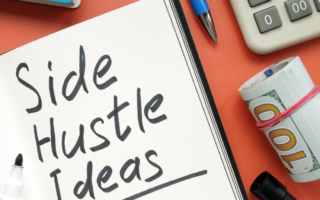Avoid these 10 common habits when you’re financially broke to protect your financial future and make smarter money decisions.
Being financially broke can be a stressful and overwhelming experience. When your finances are tight, it’s tempting to make decisions based on short-term relief rather than long-term financial health. But these choices can lead to deeper problems, like debt and financial insecurity. Understanding which habits to avoid when you’re financially broke is critical to turning your financial situation around.
This guide will walk you through the top 10 habits to steer clear of and offer practical advice to help you regain control of your finances.
1. Avoiding Your Financial Situation
One of the most damaging habits when you’re financially broke is ignoring the problem. Many people in financial trouble avoid looking at their bank balance, refuse to open bills, and procrastinate on taking action. Ignoring your financial situation doesn’t make it better—in fact, it makes it worse.
Instead of avoiding your financial problems, face them head-on. Review your spending, assess your debt, and create a plan. Start by listing all your financial obligations and income sources. By having a clear picture, you’ll be able to take concrete steps to address your financial challenges.
2. Relying on Credit Cards for Everyday Expenses
Using credit cards for everyday purchases might seem like a quick fix when you’re broke, but it’s a dangerous habit that can lead to mounting debt. High-interest rates can cause your credit card balance to grow rapidly, especially if you’re only making minimum payments. This debt cycle becomes harder to break as interest accrues.
Instead of relying on credit cards, prioritize paying off existing debt and shift to using cash or a debit card. If you’re in a tight spot, consider setting up a strict budget to track expenses and reduce non-essential spending. Avoid using credit as a long-term solution.
3. Failing to Budget
Budgeting is one of the most effective tools for managing your finances, yet many people skip this crucial step. Without a clear budget, it’s easy to overspend, lose track of expenses, and overlook saving opportunities. When you’re financially broke, every dollar counts, and without a budget, it’s nearly impossible to control your spending.
To regain financial stability, create a simple, realistic budget. Track your income and categorize your expenses. Allocate money for essentials, like rent and groceries, and find areas where you can cut back. Budgeting not only helps you understand where your money is going but also ensures you’re prioritizing the most critical expenses.
4. Making Impulsive Purchases
When you’re broke, making impulsive purchases can be a major setback. It’s easy to justify small, unnecessary buys, thinking they won’t make much of a difference. However, these impulse purchases can add up quickly and prevent you from saving for essential expenses or paying down debt.
To avoid impulse spending, create a “cooling-off period” before making any non-essential purchase. Wait 24 to 48 hours to assess whether you really need the item. This practice helps you avoid buyer’s remorse and keep your finances in check. Additionally, delete shopping apps from your phone or unsubscribe from promotional emails that tempt you to spend.
5. Not Saving for Emergencies
Many people who are financially broke skip saving altogether, assuming they can’t afford it. However, not having an emergency fund leaves you vulnerable to unexpected expenses, such as car repairs or medical bills, which can drive you further into debt.
Even if you’re broke, it’s essential to save whatever small amount you can. Start by setting aside even a few dollars each week to build an emergency fund. Over time, this habit will create a cushion that can prevent financial emergencies from derailing your progress.
6. Borrowing from Friends and Family Without a Plan
When you’re broke, it’s tempting to ask friends and family for financial help. While this may provide short-term relief, borrowing without a clear plan to repay can strain relationships and leave you feeling dependent.
If you do need to borrow from loved ones, be transparent about your repayment plan. Communicate openly about your financial situation and set clear terms for paying the money back. Most importantly, avoid borrowing repeatedly as a solution to financial issues—focus on solving the underlying problems instead.
7. Neglecting to Prioritize Debt Repayment
When you’re financially broke, managing debt can feel overwhelming. Many people put off paying down debt, hoping things will improve later. However, this often leads to escalating balances and late fees, making it harder to recover.
The best approach is to prioritize debt repayment, even if it’s in small amounts. Start by focusing on high-interest debt, like credit cards, to minimize interest charges. Consider consolidating your debt or contacting creditors to discuss alternative payment options, such as lower interest rates or extended payment terms.
8. Eating Out Too Often
Eating out is a convenience many people turn to when life gets busy, but it can be a costly habit, especially if you’re financially broke. The average meal at a restaurant can cost significantly more than cooking at home, and frequent dining out quickly drains your budget.
Instead, focus on meal planning and preparing your food at home. Not only does cooking at home save money, but it also helps you control portion sizes and make healthier food choices. Set a weekly budget for groceries and stick to it, avoiding takeout and unnecessary food spending.
9. Neglecting to Look for Additional Income Streams
When you’re broke, it’s easy to focus solely on cutting expenses. However, reducing spending only goes so far. Ignoring opportunities to increase your income is a common mistake that can keep you stuck in a financial rut.
Look for ways to boost your income, whether through side gigs, freelance work, or selling items you no longer need. Exploring additional income streams can provide some much-needed financial relief and help you build savings faster. Even small extra earnings can make a big difference when managed properly.
10. Skipping Health Insurance
Skipping health insurance may seem like an easy way to save money when you’re financially broke, but it’s a risky decision. Medical bills from unexpected health issues or accidents can be astronomical and lead to serious financial problems, including bankruptcy.
If full health insurance premiums seem too expensive, look into affordable alternatives, such as government-subsidized plans or catastrophic coverage. It’s better to have some protection than none at all, as medical expenses can wipe out your savings and lead to insurmountable debt.
Developing Healthy Financial Habits
Breaking these harmful financial habits is only the beginning. To truly improve your financial situation, it’s essential to develop new, healthier habits that support long-term financial health. These might include automating your savings, creating a debt repayment strategy, and learning how to invest wisely. Taking small but consistent steps toward better financial management can lead to significant progress over time.
The Importance of Financial Discipline
Financial discipline plays a crucial role in overcoming financial hardship. It involves sticking to a budget, controlling impulsive spending, and staying committed to your financial goals. Even when things improve financially, maintaining discipline ensures you don’t fall back into bad habits. Remember, wealth building takes time, patience, and persistence.
RECOMMENDED: Causes of Financial Problems in Business
Managing Financial Stress: A Balanced Approach
Financial stress is common when you’re broke, and it can negatively affect your mental and emotional well-being. It’s important to find ways to manage stress, whether through meditation, exercise, or talking to a financial advisor. Staying calm and focused allows you to make better decisions and avoid emotional spending or impulsive financial choices.
Planning for the Future While Broke
It’s hard to think about the future when you’re struggling financially, but planning is essential. Start by setting realistic financial goals, such as building an emergency fund, paying off debt, or saving for retirement. Focus on small, achievable milestones that will build momentum and give you a sense of progress.
Understanding Your Financial Priorities
When you’re broke, it’s easy to lose sight of your financial priorities. Paying off debt, building savings, and covering essential expenses should come first. By focusing on these key areas, you’ll create a stronger financial foundation to build on once your situation improves.
Seeking Professional Help
If you’re struggling to manage your finances, seeking help from a financial advisor or debt counselor can be invaluable. These professionals can provide personalized advice, help you create a realistic budget, and offer solutions for managing debt more effectively. There’s no shame in asking for help, and it can often accelerate your financial recovery.
Taking Control of Your Financial Future
When you’re financially broke, it’s essential to break the habits that keep you stuck in financial hardship. By avoiding common mistakes like relying on credit cards, skipping budgets, and making impulsive purchases, you can start regaining control of your finances. Developing good financial habits, such as budgeting, saving, and seeking additional income, will set you on the path toward financial recovery.
Remember, it’s never too late to make smarter financial choices and secure a brighter financial future.
FAQs
How do I start saving when I’m broke?
Start small—set aside even a few dollars each week. Over time, this habit will help you build an emergency fund.
What should I do if I can’t pay my bills?
Reach out to your creditors to discuss alternative payment plans or seek advice from a financial counselor. Ignoring bills can lead to penalties and higher interest.
Can I improve my financial situation without extra income?
Yes, by cutting unnecessary expenses, creating a budget, and focusing on debt repayment, you can improve your financial health without increasing income.
How can I avoid impulsive spending?
Implement a “cooling-off period” before making purchases. Waiting 24-48 hours helps you assess whether you really need the item.
Is using credit cards when broke a bad idea?
Yes, relying on credit cards when you’re broke can lead to debt accumulation. Focus on reducing your debt and only use credit responsibly.
Should I invest when I’m financially broke?
Before investing, prioritize building an emergency fund and paying off high-interest debt. Once your finances are stable, you can explore investing opportunities.
How do I create a budget if I’m broke?
List your income and essential expenses first. Allocate remaining funds toward debt repayment and savings. Stick to your budget by cutting non-essential spending.




